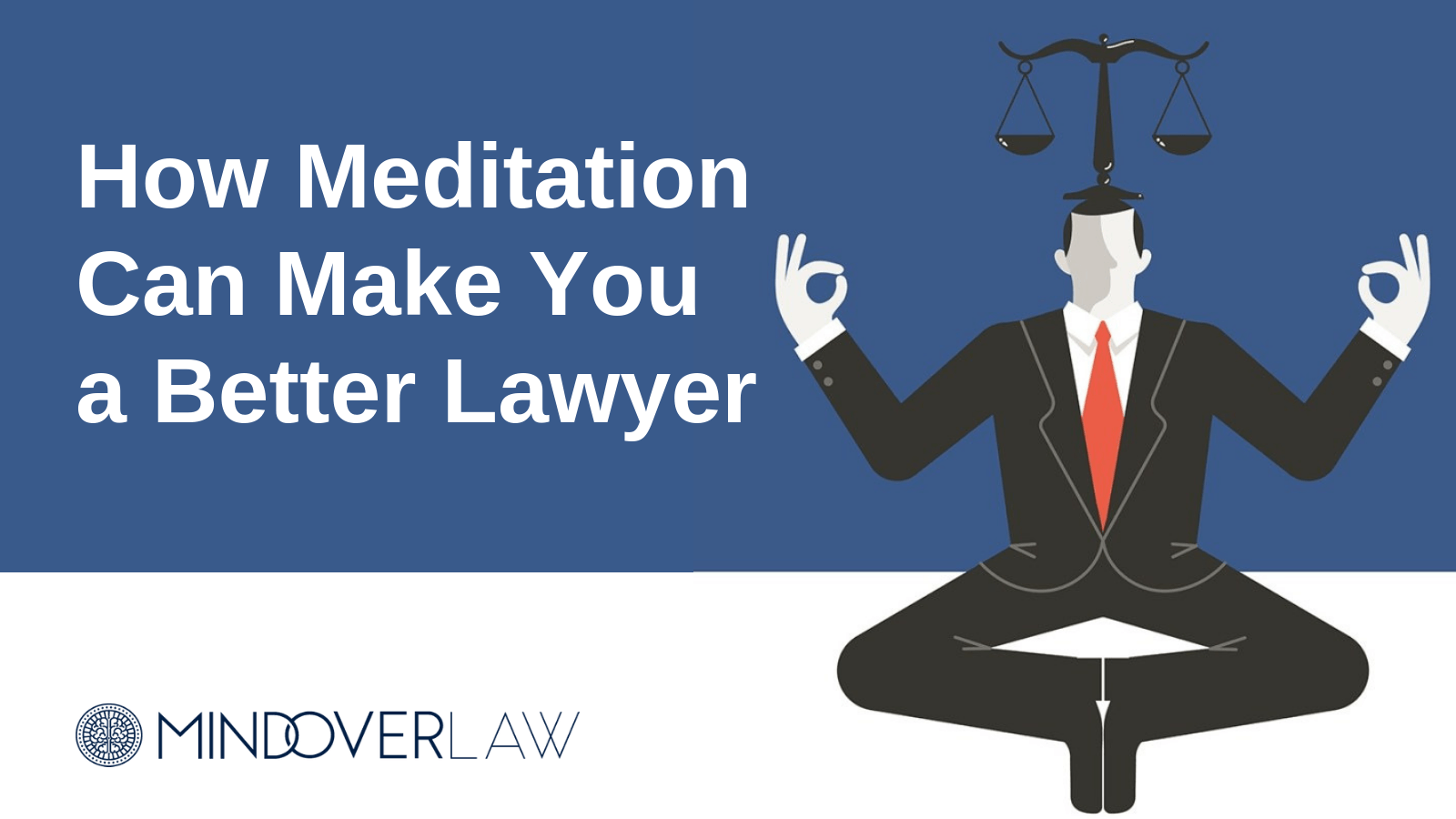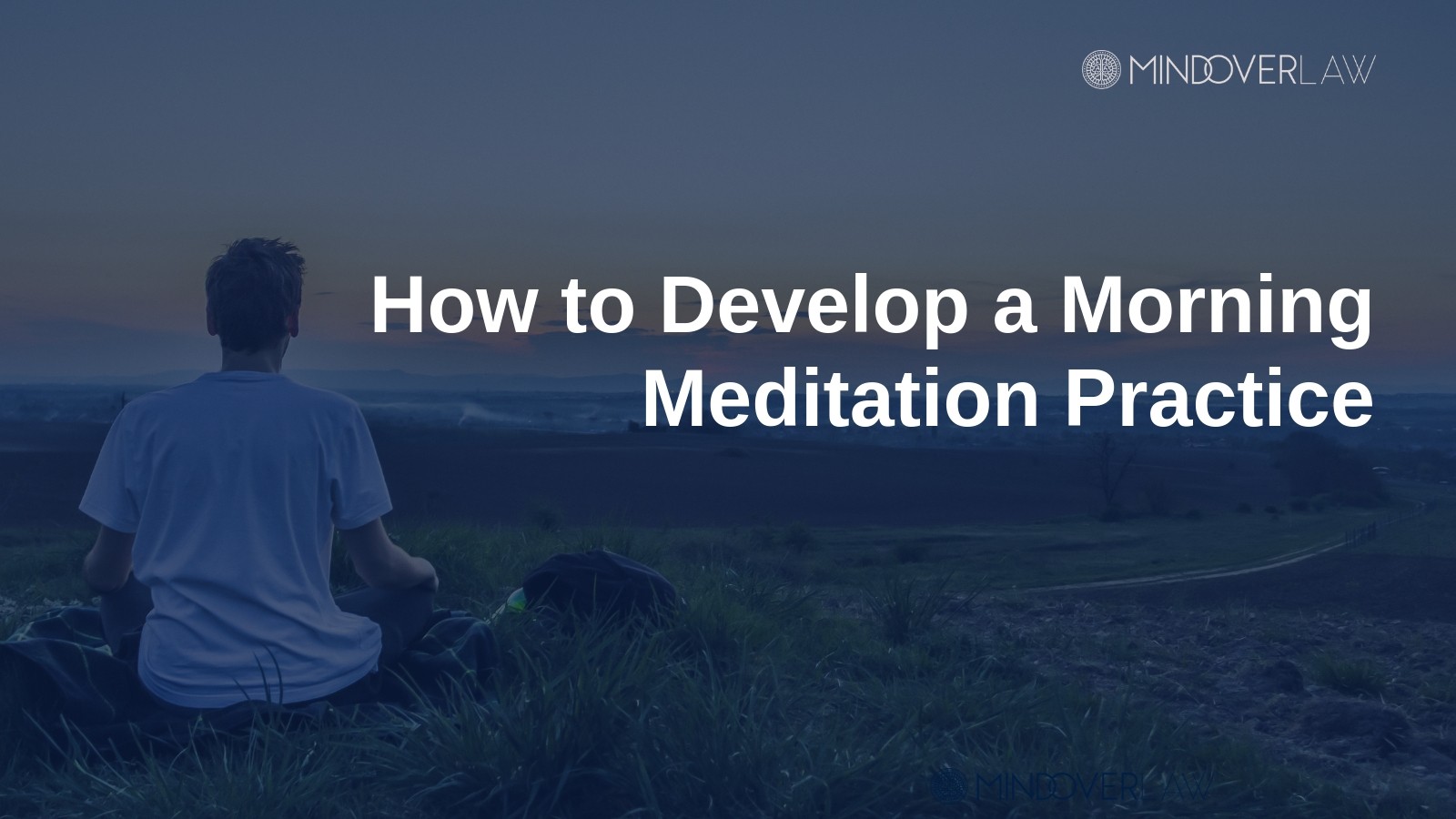The stress of practicing law can take its toll. That’s why the American Bar Association and law schools throughout the country encourage aspiring lawyers and attorneys to meditate. Regular meditation can reduce your stress, improve cognition and memory, and decrease anxiety.
Developing a daily meditation practice might seem far-fetched when you’re overworked, overstressed, and seriously sleep deprived. On top of that, many people think that a meditation practice is overly time consuming. The truth is that meditation can be minimal but still beneficial. Carving out 15 minutes every day could make a positive impact on your life and improve your wellbeing.
Benefits of Meditation for Lawyers
Meditation is a powerful tool to handle stress, cope with life’s uncertainties, and achieve work-life balance. Following are science-based benefits of meditation:
- A study found that regular meditation reduces inflammation from chemicals related to the stress hormone, cortisol.
- Meditation is perfect for reducing work stress caused by high-pressure jobs. Researchers found that meditation significantly lowered the stress levels of its participants who worked as nurses.
- A study revealed that frequent meditation counteracts the release of chemicals that contribute to feelings of depression and anxiety.
- Researchers found that meditation improves cognition by reversing brain patterns that lead to worrying, poor attention spans, and mind wandering.
Tips for Finding Time to Meditate
While there’s plenty of science to support the benefits behind meditation, many people have difficulty believing that adopting a meditation practice is attainable. If you’re struggling to find ways to incorporate meditation into your life, consider the following tips to get you started.
Focus on Quality Not Quantity
While Buddhist monks can meditate for hours a day, you probably don’t have time for that level of dedication. You can, however, easily find time to meditate for 15 minutes each day. Focusing on the length of your meditation sessions instead of the quality can make daily meditation seem unattainable. Instead, acknowledge that any time to meditate is beneficial and worth your time.
Meditation While You’re Walking
You can meditate while doing something else, particularly exercising or taking a leisurely walk. Next time you find yourself walking from your car to the office or around your neighborhood, focus on being mindful. For example, recognize with gratitude that being able to physically walk is a blessing. Take in the sounds and sensations of your shoes making contact with the ground beneath you. Walking with mindful intention is a form of meditation. Check out this article on meditation from this 5 minute meditation for more inspiration.
Eliminate Time-Wasting Tasks and Activities
We all waste time. When you find time-wasting activities and eliminate them, you’re giving yourself a gift. An honest self-assessment of how much time you spend surfing the web, scrolling through social media feeds, and watching television programs you don’t really enjoy that much could easily add 30 minutes to an hour of your day. Once you’ve eliminated time-wasting activities, dedicate your newly-freed time to daily mediation.
Use a Guided Meditation App
There are numerous apps available that can help you mediate. Apps offer meditations to prepare for specific activities such as going to sleep or starting your day, too. They have helpful features like ambient noise, timers, and even guided instructions. These apps can be a powerful tool for establishing a daily meditation practice when you’re short on time. Check out Insight Timer a popular meditation app, to help ensure that your meditative sessions are productive and refreshing.
Our company offers life coaching services for attorneys. We strive to help our clients eliminate stress, meet their professional and personal goals, boost productivity, and improve wellness. In addition to helpful information on meditation, our blog and social media accounts provide tips on improving work-life balance and developing coping skills to manage the demanding nature of practicing law.



